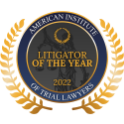 Many parents consider adding their children’s names to asset titles with the hope of simplifying their estate planning, avoiding probate, or for other perceived benefits. However, it is crucial to carefully weigh the potential risks and advantages of this strategy before making any decisions.
Many parents consider adding their children’s names to asset titles with the hope of simplifying their estate planning, avoiding probate, or for other perceived benefits. However, it is crucial to carefully weigh the potential risks and advantages of this strategy before making any decisions.
What Does Adding a Child to a Title Mean?
Adding childrens’ names to asset titles, such as real estate, investment accounts, or bank accounts, signifies joint ownership. The specific form of joint ownership selected will have significant ramifications regarding control over the asset and inheritance rights. Here’s a closer look at common forms in the context of parent-child asset ownership.
1. Joint Tenancy with Right of Survivorship (JTWROS)
Both you and your child have equal rights and ownership of the asset throughout your lifetimes. Upon the death of one owner, their ownership interest automatically passes to the surviving owner, regardless of any instructions in a will. Right of survivorship is the key feature distinguishing JTWROS. Assets held in JTWROS generally bypass the probate process, potentially simplifying the transfer of ownership.
2. Tenancy in Common
As tenants in common, you and your child can hold unequal shares of the asset. For example, you might hold a 70% share and your child the remaining 30%. Unlike JTWROS, a tenancy in common does not have a right of survivorship. Upon a co-owner’s death, their share of the asset passes to their heirs according to their will. If no will exists, state laws will determine how the deceased owner’s share is distributed.
Top 5 Reasons to Be Cautious
There are potential downsides to adding a child’s name to an asset title.:
Top 1: Loss of Control
Once you add your child as a joint owner, they gain a degree of ownership and control over the asset. This means that, depending on the type of joint ownership, important decisions like selling, mortgaging, or making major changes to the property may require their agreement. You could lose the flexibility to handle the asset independently.
Top 2: Exposure to Child’s Liabilities
Adding your child as a joint owner exposes the asset to the potential consequences of your child’s financial issues. If your child encounters a lawsuit, bankruptcy, or significant debt, their creditors could lay claim to the asset, even if those debts are unrelated to the asset itself. This places your assets at risk due to circumstances beyond your control.
Top 3: Divorce Concerns
If your child gets divorced, their spouse could potentially lay a claim to a portion of the asset as part of the divorce settlement. This could significantly impact the future ownership of the asset even if it wasn’t your intention.
Top 4: Gift Tax Implications
Depending on the asset’s fair market value, transferring a portion of ownership to your child could be considered a taxable gift under federal tax laws. You might incur gift tax liability if the value of the gift exceeds annual or lifetime gift tax exclusion limits.
Top 5: Capital Gains Tax
When your child eventually sells the asset, they will likely face capital gains tax. However, their cost basis (used to calculate the tax) will typically be your original purchase price, potentially leading to a much higher capital gains tax liability than if you had retained ownership until your death.
Alternatives to Explore
Instead of immediately adding your children to your asset titles, consider other estate planning strategies that may better suit your long-term goals:
- Revocable Living Trust: Provides more control over assets during your lifetime and can structure asset distribution as desired after your passing.
- Will: Ensures your assets are distributed according to your wishes, but be aware of the probate process.
- Life Estate Deed: Allows you to retain lifetime use of the property while transferring ownership upon your death.
- Durable Power of Attorney: Nominates someone you trust to make financial decisions on your behalf if you become incapacitated.
Unparalleled Guidance from the Law Office of Chris W. Chong
Estate planning matters are complex and should be tailored to your specific circumstances. Don’t risk making uninformed decisions that could have far-reaching consequences. Our Utah estate planning attorneys at The Law Office of Chris W. Chong have the experience to help you determine the best estate planning strategies to protect your assets, minimize taxes, and achieve your family goals.
Contact us today to schedule a consultation with one of our knowledgeable estate planning lawyers. We’ll work with you to design an estate plan that provides you with peace of mind and ensures your legacy is protected.







